JUUstice Washington has many programs available to help engage individuals and organizations in justice work. We have specific issue action teams and a legislative advocacy team. We have an annual Summit and Legislative conference. We are currently developing an EDI program as well.
Issue Action Teams
Our issue action teams are composed of individuals and organizations that are working on specific justice issues and are volunteer lead. Visit the Issue Action Teams pages to see what issues are currently active. There will be information on what’s happening in each area, resources for each issue area and lots of other information. If your issue is not represented, you can request to be connected with others working on an issue and possibly create an action for the issue you are interested in. See below for details.
Legislative Advocacy
Our Legislative Advocacy Team works specifically on Washington State legislative activities that impact justice issues. Visit the Legislative Advocacy page to see what pieces of legislation are being tracked, how to comment and who to contact to voice your support or opposition for a specific piece of legislation.
Conferences
Currently we have two annual gatherings, a Justice Summit and a Legislative Conference. The Justice Summit is a gathering of UU justice activists and allies and partners to explore and strategize actions around social and environmental justice issues. The Legislative Conference canvases UU congregations in the State of Washington to set some issue priorities for the upcoming legislative session. See our Conferences page to get more details on what we done and what we will be doing.
EDI
Equity, Diversity and Inclusion is a hot button issue for UUs as well as the greater community at large. It’s an issue that we’re all struggling with as we try to find ways to be more open, intercultural, inclusive and support of marginalized communities. Please see our EDI page for more information.
ISSUE ACTION TEAMS
Over the last several years, we have witnessed the growth of activity in certain issue areas in Washington State and throughout the Pacific Northwest region. Issue-specific congregational groups have been forming and networking with other UU congregations, other interfaith groups and social and environmental justice organizations.
These action teams are the focal point for justice work within JUUstice Washington. We have identified six different action teams where action and interconnection are the strongest. These acton teams will offer a variety of information on what work has been and is being done. They will provide resources for education and activism, event notices and calendars and direct one-on-one contact with an action team leader.
While these are the main groups right now, there is plenty of room to add more issue action teams. Do you have a passion in an issue that is not one of our action teams? There are many justice issues out there that need action and we have the resources to help guide you. Let us know and we can connect you with other individuals who may have the same or a similar justice passion. If we can get you connected to enough people, you could ask us about becoming an action team. The current action teams are identified below.
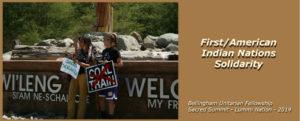 First/American Indian Nations Solidarity is a resource for those individuals or groups seeking to learn more of and work with our First and American Indian communities. It seeks to provide culturally appropriate and current information on the background of various Nations and the myriad of issues faced by indigenous communities. We work diligently to assist in establishing meaningful relationships with First and American Indian communities. While the action team is predominantly engaged with Nations and issues within the Pacific Northwest, we also become engaged with Nations and issues throughout the United States and Canada. We have an extensive network of Indian and non-Indian individuals, groups and organizations engaged in social, political, environmental and cultural activities. Participants in the action team come from a broad spectrum of faith communities, social justice organizations, environmental organizations, other NGOs, governmental bodies and Tribes and Nations.
First/American Indian Nations Solidarity is a resource for those individuals or groups seeking to learn more of and work with our First and American Indian communities. It seeks to provide culturally appropriate and current information on the background of various Nations and the myriad of issues faced by indigenous communities. We work diligently to assist in establishing meaningful relationships with First and American Indian communities. While the action team is predominantly engaged with Nations and issues within the Pacific Northwest, we also become engaged with Nations and issues throughout the United States and Canada. We have an extensive network of Indian and non-Indian individuals, groups and organizations engaged in social, political, environmental and cultural activities. Participants in the action team come from a broad spectrum of faith communities, social justice organizations, environmental organizations, other NGOs, governmental bodies and Tribes and Nations.
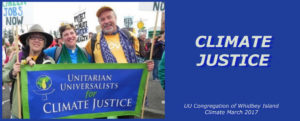 Climate Justice Action Team recognizes that humanity is at an inflection point for survival. We in the Unitarian Universalist community have a duty to raise our voices for the moral commitment to human survival. We cannot continue our current patterns of consumption and production with reliance on fossil fuels for energy. Communities of color and low-income populations are disproportionately affected by the consequences of climate change. Richer communities and nations can, for the time being, avoid some of the more severe consequences but all will be severely impacted in the long run. Recognition of our common humanity is a necessary premise to all of our actions. We envision a world that approaches energy use in a sustainable manner for generations to come.
Climate Justice Action Team recognizes that humanity is at an inflection point for survival. We in the Unitarian Universalist community have a duty to raise our voices for the moral commitment to human survival. We cannot continue our current patterns of consumption and production with reliance on fossil fuels for energy. Communities of color and low-income populations are disproportionately affected by the consequences of climate change. Richer communities and nations can, for the time being, avoid some of the more severe consequences but all will be severely impacted in the long run. Recognition of our common humanity is a necessary premise to all of our actions. We envision a world that approaches energy use in a sustainable manner for generations to come.
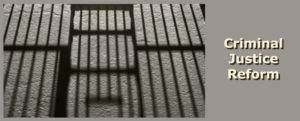 Criminal Justice Reform Action Team is based upon our Unitarian Universalist principles where we are called to work to make “Equal Justice for All” a reality in our country, our state, and our communities. We work with Northwest Unitarian Universalists and others in our communities to provide humane, science driven solutions to the criminal justice system. We educate, organize, and activate those who want to see justice applied fairly for all. Criminal Justice Reform issues include abolishing the death penalty, eliminating cash bail, establishing restorative justice, challenging private prisons and more.
Criminal Justice Reform Action Team is based upon our Unitarian Universalist principles where we are called to work to make “Equal Justice for All” a reality in our country, our state, and our communities. We work with Northwest Unitarian Universalists and others in our communities to provide humane, science driven solutions to the criminal justice system. We educate, organize, and activate those who want to see justice applied fairly for all. Criminal Justice Reform issues include abolishing the death penalty, eliminating cash bail, establishing restorative justice, challenging private prisons and more.
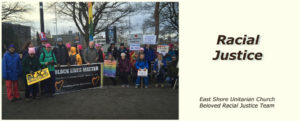 Racial Justice Action Team asks the hard questions and seeks the expose the truth in what white privilege is and its role in institutional and personal racism. What do we do in the face of systemic racism? What do we do as people of color oppressed by these systems? What do we do as white folk who are privileged by these same systems? Many of us are asking questions, searching for answers, and taking action where we see a path. This Antiracism action team is for those doing this work so we can share, learn, and act in each other’s company. Join us if this is your calling, too. We aspire to be people of all colors, all faiths and all non-faiths.
Racial Justice Action Team asks the hard questions and seeks the expose the truth in what white privilege is and its role in institutional and personal racism. What do we do in the face of systemic racism? What do we do as people of color oppressed by these systems? What do we do as white folk who are privileged by these same systems? Many of us are asking questions, searching for answers, and taking action where we see a path. This Antiracism action team is for those doing this work so we can share, learn, and act in each other’s company. Join us if this is your calling, too. We aspire to be people of all colors, all faiths and all non-faiths.
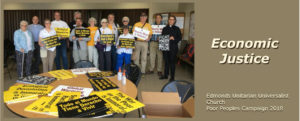 Economic Justice Action Team encompasses privation – some people’s lack of the necessities of human life and well-being — food, shelter, health care. However, economic justice is about more than poverty. It’s also about America’s alarming widening of economic inequality since the 1970s. The problems go beyond the obvious grinding problems of the poor — to the struggles, insecurities and frustrations of the middle class — and the alienation and false consciousness of the rich. And economic justice is not just about the economy. It’s about the corrosive effects of extreme income and wealth disparities on the health of our entire society, our country’s political life, and our individual interpersonal relations. UUs working on these problems look at their interdependent effects and causes. We also examine alternative ways of ordering our society and economy. And we look for specific policies we can support and specific actions we can take.
Economic Justice Action Team encompasses privation – some people’s lack of the necessities of human life and well-being — food, shelter, health care. However, economic justice is about more than poverty. It’s also about America’s alarming widening of economic inequality since the 1970s. The problems go beyond the obvious grinding problems of the poor — to the struggles, insecurities and frustrations of the middle class — and the alienation and false consciousness of the rich. And economic justice is not just about the economy. It’s about the corrosive effects of extreme income and wealth disparities on the health of our entire society, our country’s political life, and our individual interpersonal relations. UUs working on these problems look at their interdependent effects and causes. We also examine alternative ways of ordering our society and economy. And we look for specific policies we can support and specific actions we can take.
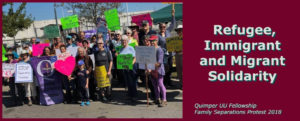 Immigrant, Refugee and Migrant Solidarity Action Team echoes the opening words of the Declaration of Conscience, joint statement of the Unitarian Universalist Association and the Unitarian Universalist Service Committee, January 2017. “At this extraordinary time in our nation’s history, we are called to affirm our profound commitment to the fundamental principles of justice, equity and compassion, to truth and the core values of American society. … we affirm our belief in the inherent worth and dignity of every person. We will oppose any and all unjust government actions to deport, register, discriminate, or despoil. As people of conscience, we declare our commitment to translate our values into action as we stand on the side of love with the most vulnerable among us.”
Immigrant, Refugee and Migrant Solidarity Action Team echoes the opening words of the Declaration of Conscience, joint statement of the Unitarian Universalist Association and the Unitarian Universalist Service Committee, January 2017. “At this extraordinary time in our nation’s history, we are called to affirm our profound commitment to the fundamental principles of justice, equity and compassion, to truth and the core values of American society. … we affirm our belief in the inherent worth and dignity of every person. We will oppose any and all unjust government actions to deport, register, discriminate, or despoil. As people of conscience, we declare our commitment to translate our values into action as we stand on the side of love with the most vulnerable among us.”